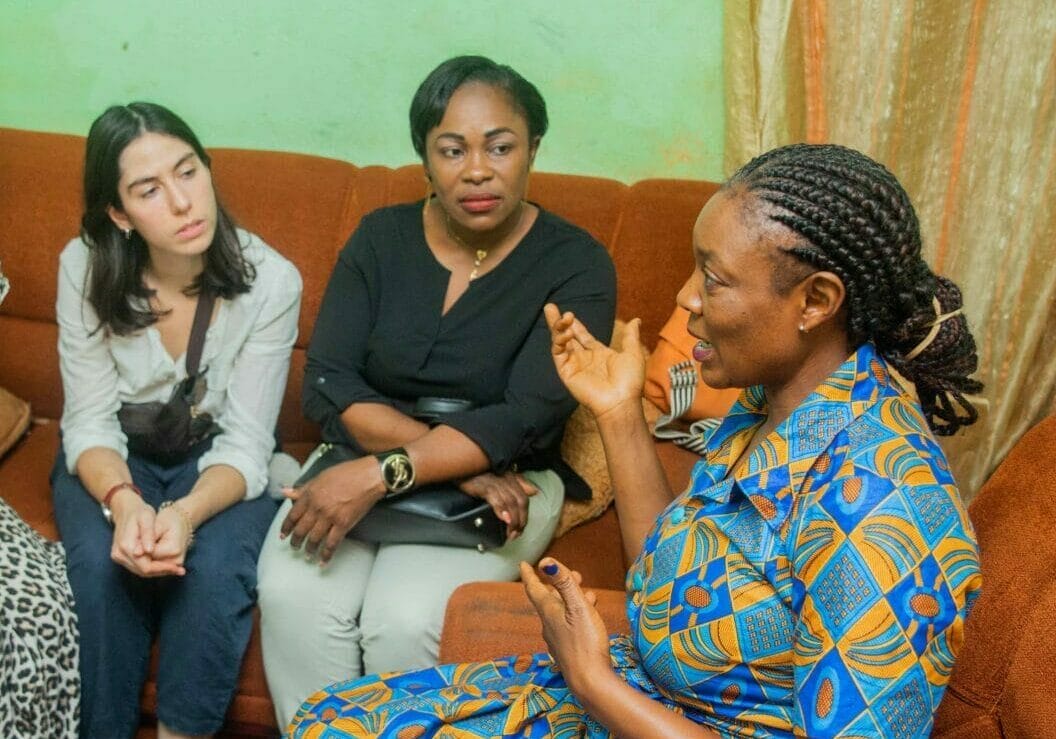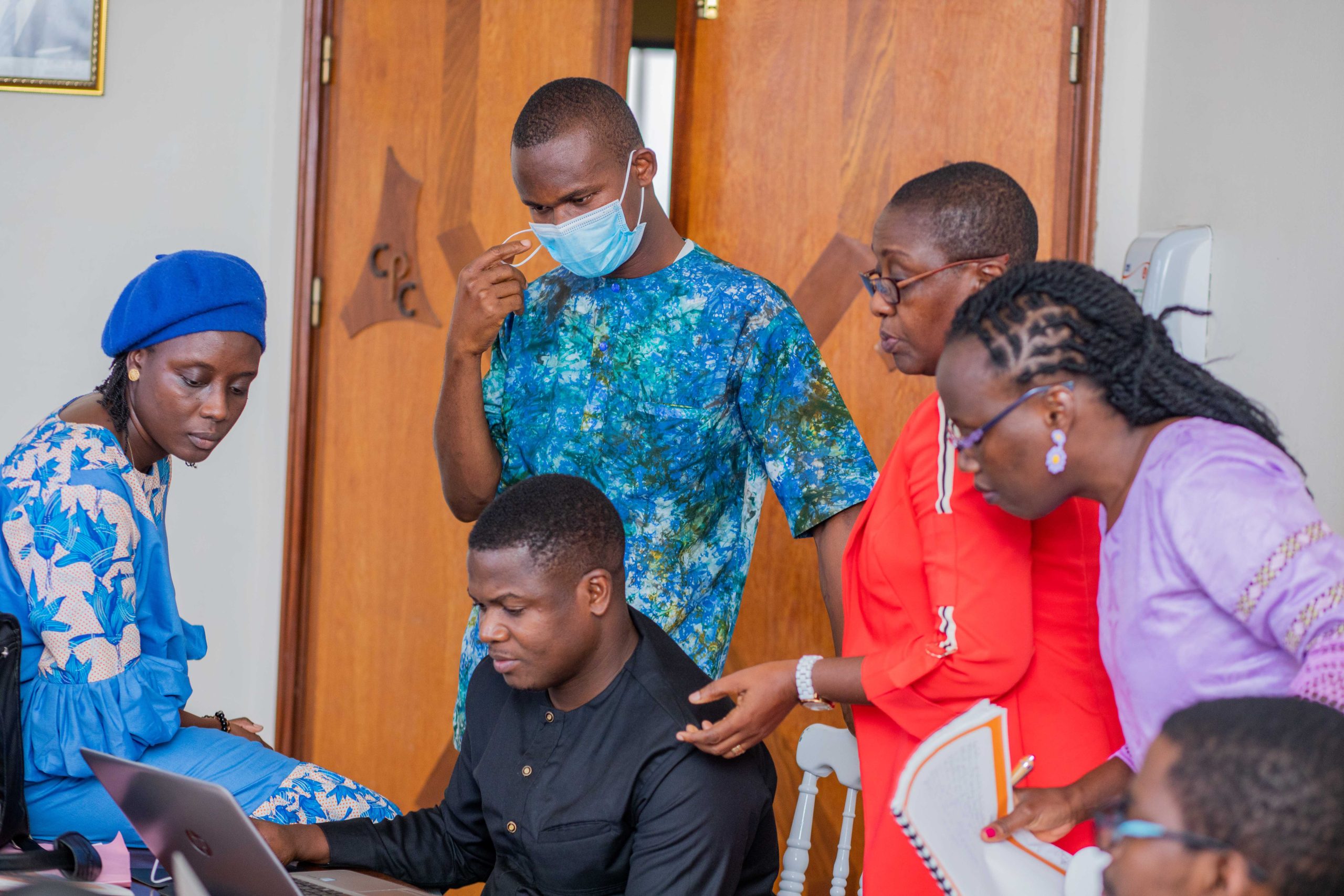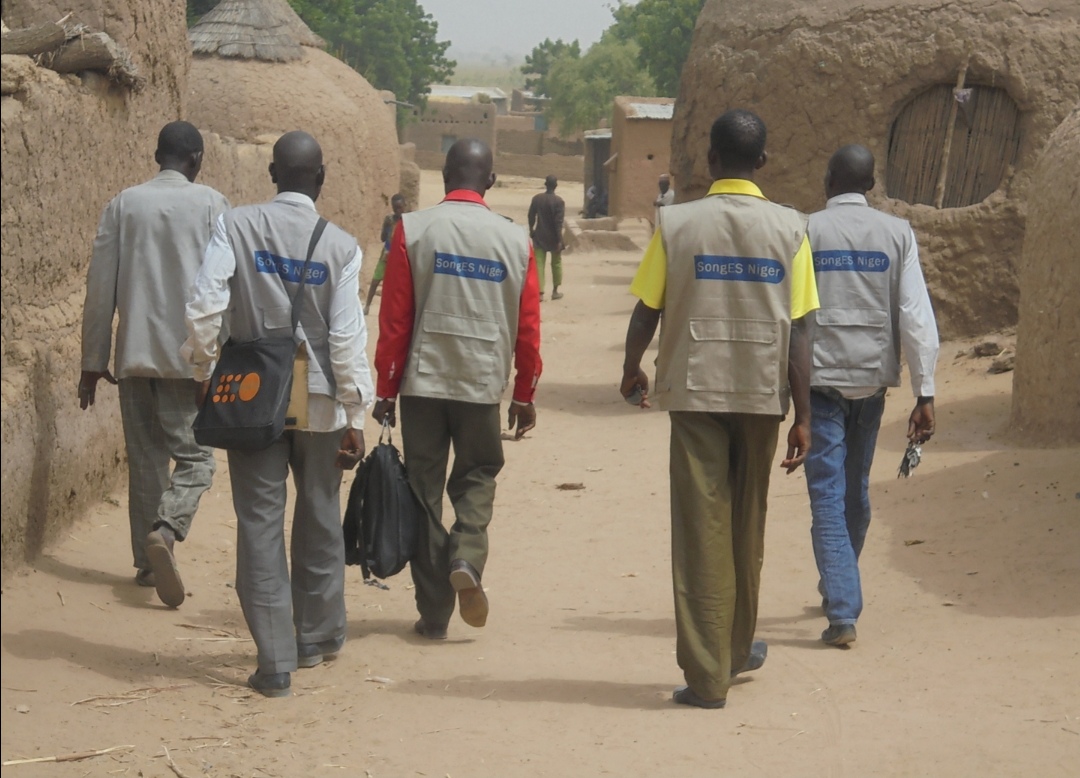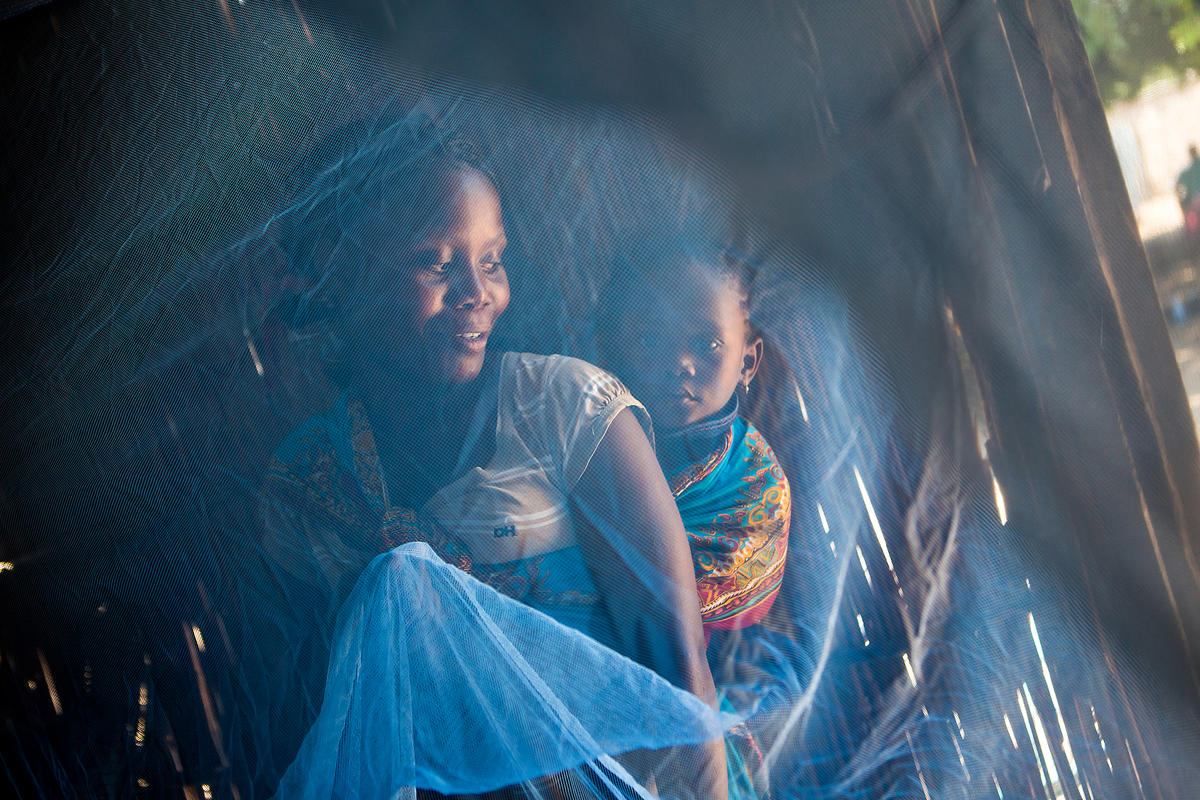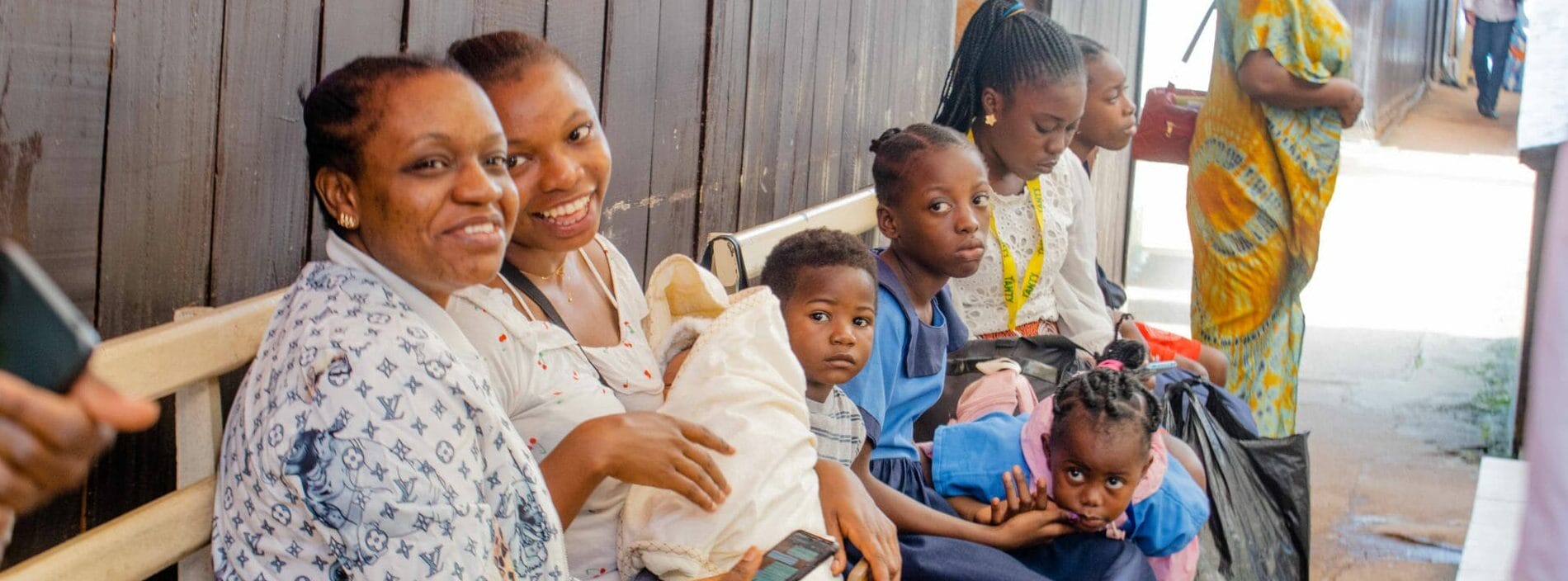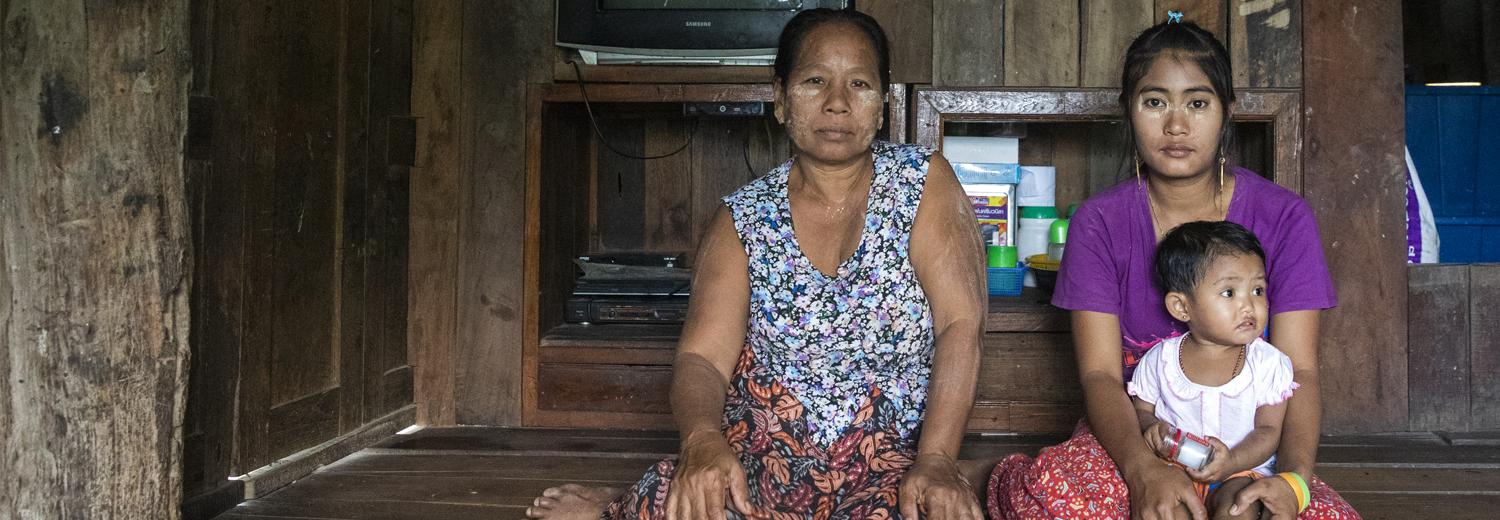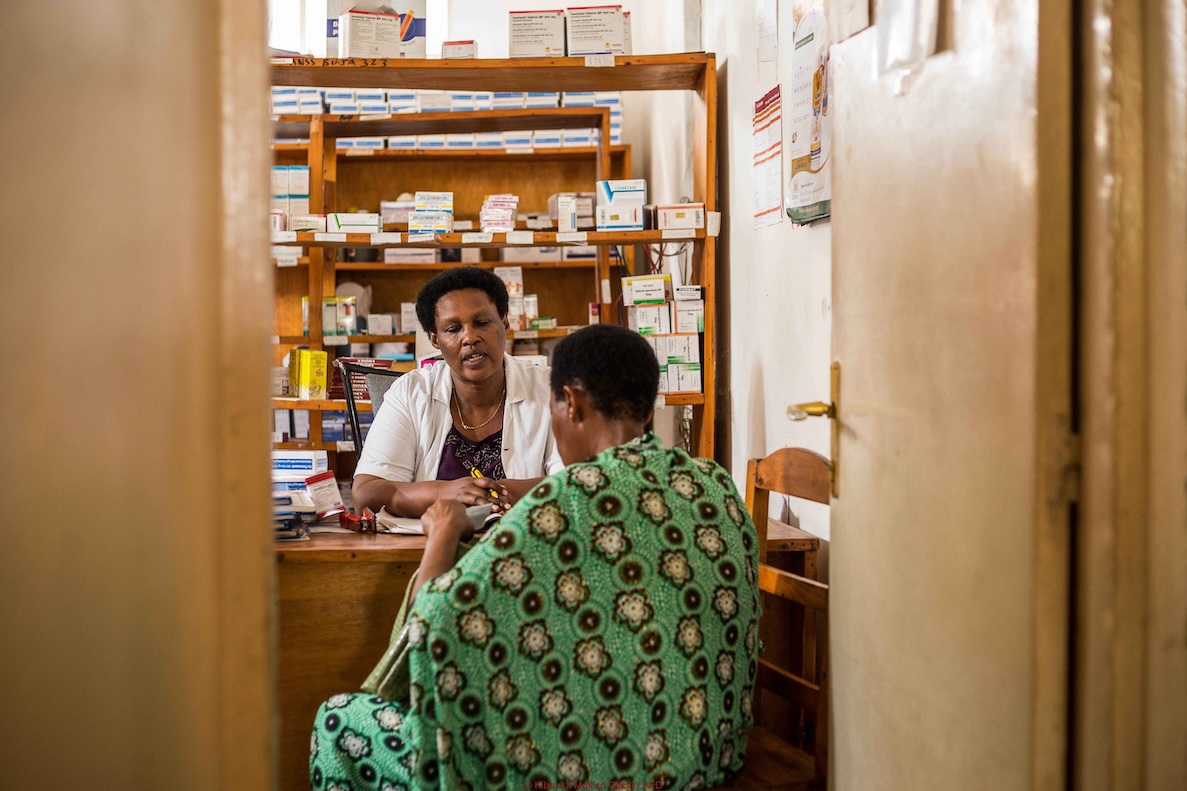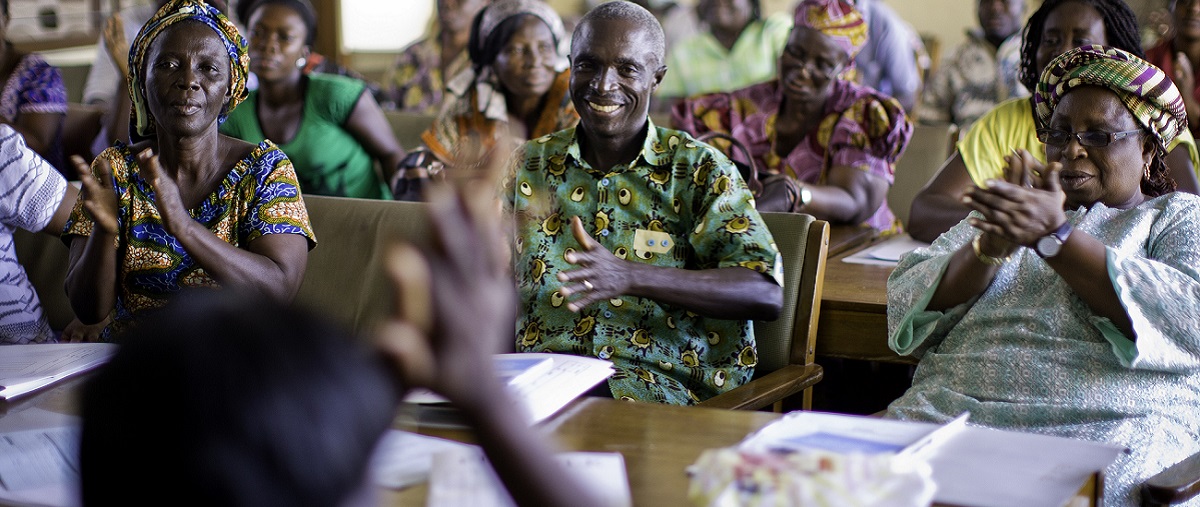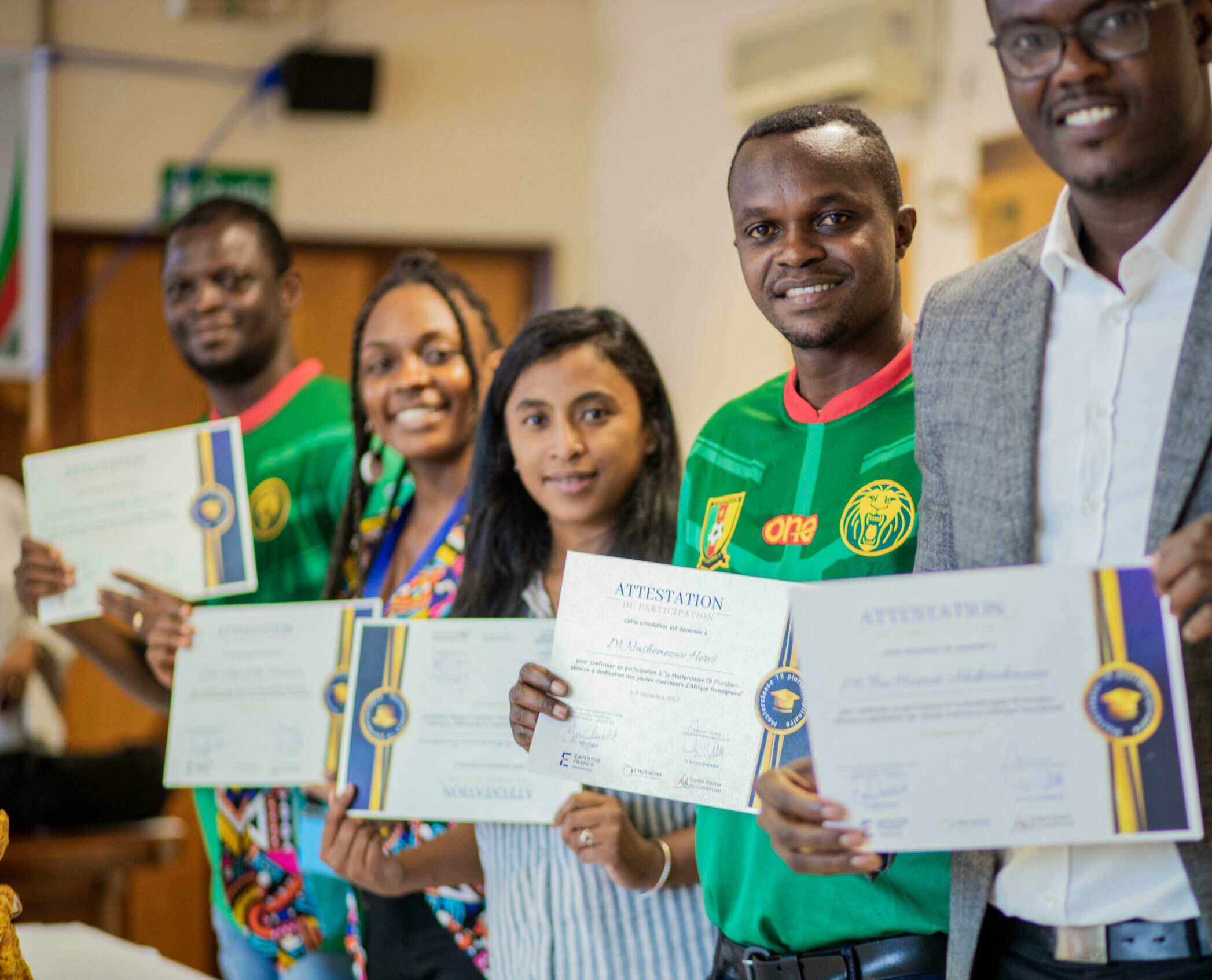L’Initiative Is Stepping Up the Response to Tuberculosis
In 2023, 8.2 million new tuberculosis cases were diagnosed out of an estimated 10.8 million cases—a record number. This is the highest figure ever recorded by the World Health Organization (WHO) since it began tracking tuberculosis in 1995. Tuberculosis has once again become the world’s deadliest infectious disease, claiming 1.25 million lives in 2023.
Tuberculosis is caused by a bacterium, Mycobacterium tuberculosis, also known as Koch’s bacillus. It spreads through the air and primarily affects the lungs. Yet, the disease is both preventable and curable—the WHO-recommended treatment saves 85% of patients. However, barriers to healthcare access, population displacement, and the emergence of multidrug-resistant tuberculosis (MDR-TB) continue to slow progress in controlling the disease. L’Initiative is fully committed to tackling this global health challenge and is actively engaged in all key areas of tuberculosis response in the most affected countries.
Key Data #2: L’Initiative’s Support in the Fight Against Tuberculosis
Since its creation, L’Initiative has been committed to reducing tuberculosis and strengthening equitable access to prevention and treatment.
Engaging in Crisis Contexts
Ensuring access to and continuity of care in crisis settings is a key priority for L’Initiative. To achieve this, it supports projects that meet the needs of the most vulnerable and strengthen health systems in critical contexts.
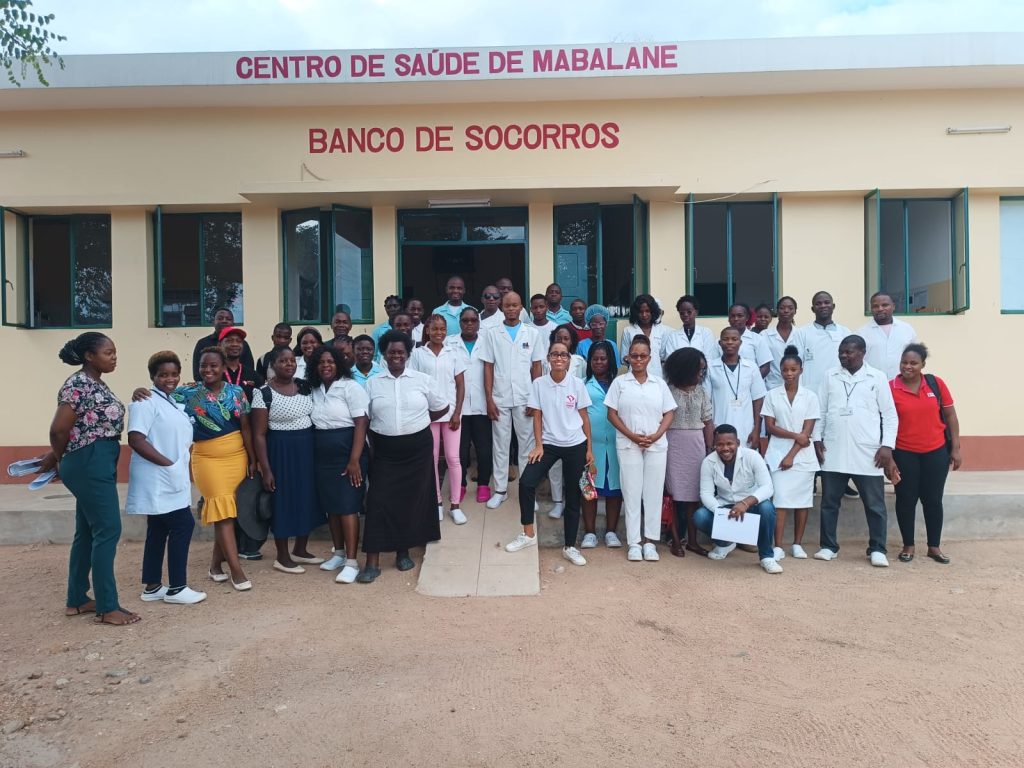
Fighting Tuberculosis in Mozambique
Mozambique is one of the countries with the highest tuberculosis incidence rates in the world, with 121,000 cases recorded in 2023. The challenges posed by the epidemic are numerous in this Southern African country: access to diagnostics and treatment, pediatric tuberculosis, and healthcare worker safety. Through its support for several projects, L’Initiative is actively working on the ground to combat this infectious disease.
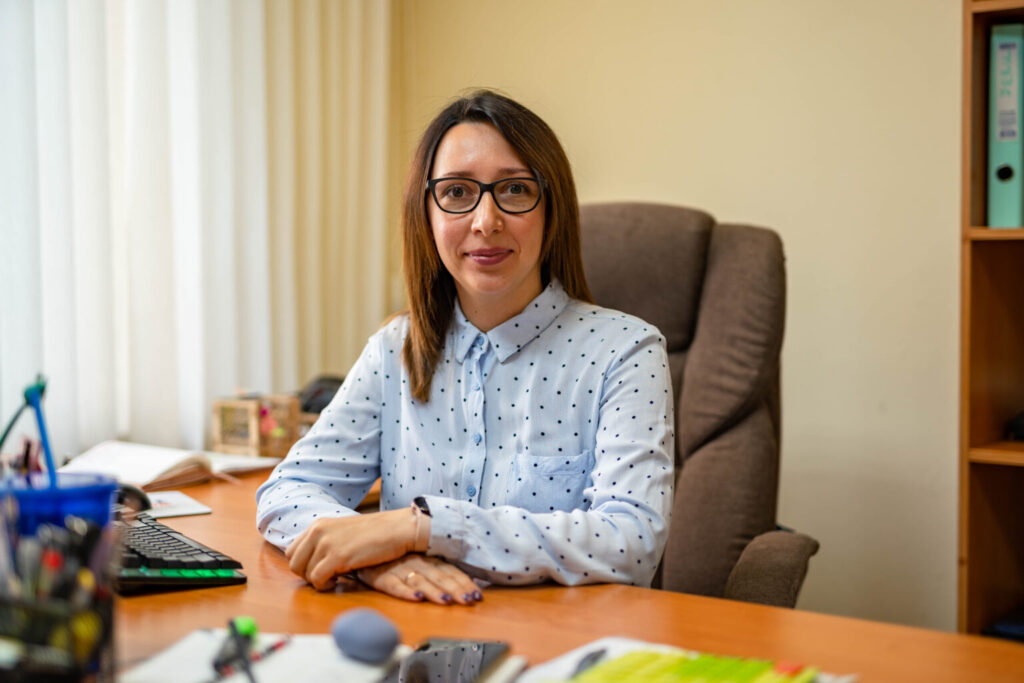
The Crucial Support of L’Initiative for TBPeopleUkraine
In Ukraine, the war has had dramatic consequences on the healthcare system, particularly in the fight against tuberculosis. Oleksandra Denysenko, head of TBPeopleUkraine, is fighting to ensure access to care, notably with the support of L’Initiative through its Ukraine emergency fund for tuberculosis and HIV.
A Film Depicting the Fight Against Tuberculosis in the Sahel
In the Sahel, L’Initiative supports the Halartar Al-Umma project, implemented by the organization SongES. The project aims to improve tuberculosis screening and care services for the most vulnerable populations in four regions with low case notification rates. As part of the project, Aïcha Macky, a committed figure in African cinema, directed the film L’Alarme du village, which highlights the challenges faced on the ground, such as lack of awareness about tuberculosis, its social impacts, and treatment abandonment. The documentary also showcases the actions taken to reduce delays in diagnosis and combat the stigma surrounding the disease. Through the testimonies of patients, community workers, and healthcare professionals, the film illustrates the effectiveness of community-based interventions and early detection in stopping transmission—when combined with free access to healthcare.
Ensuring Care for Key and Vulnerable Populations
L’Initiative is committed to ensuring that key and vulnerable populations—those most affected by and exposed to tuberculosis, yet often excluded from healthcare systems—have access to prevention services and tuberculosis care.
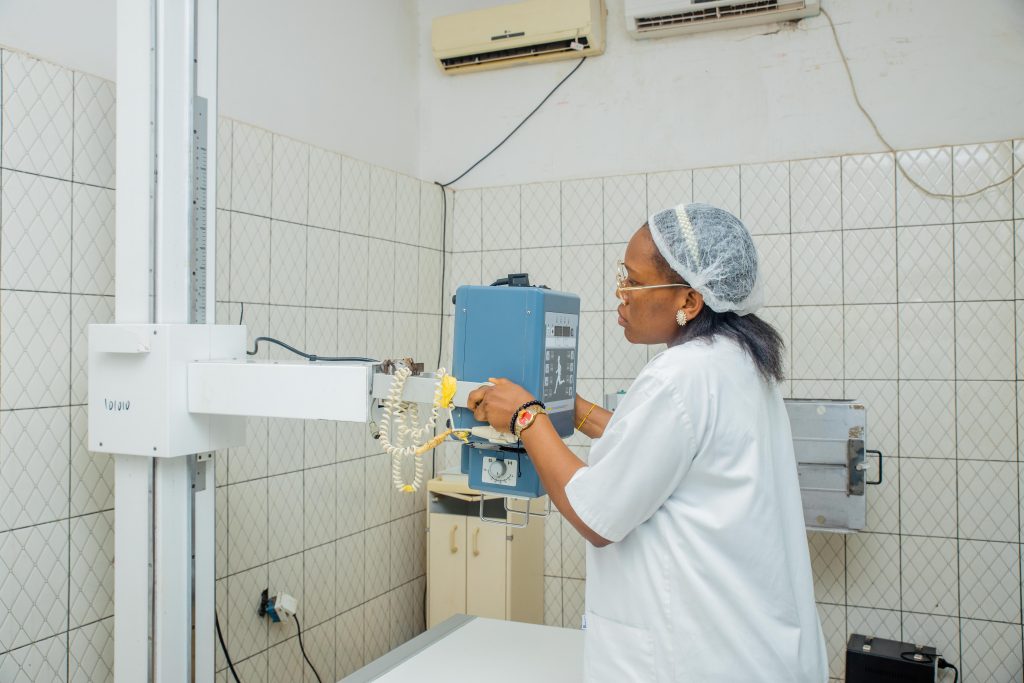
Free TB Children: Contributing to the Eradication of Pediatric Tuberculosis in Sierra Leone
According to WHO, 1.3 million children and young adolescents contract tuberculosis each year worldwide, yet only one in two is diagnosed and treated. Sierra Leone is among the countries most affected by pediatric tuberculosis. To address this, the NGO Solthis, with the support of L’Initiative, launched the Free TB Children project with the aim of improving diagnosis and treatment for this vulnerable population.
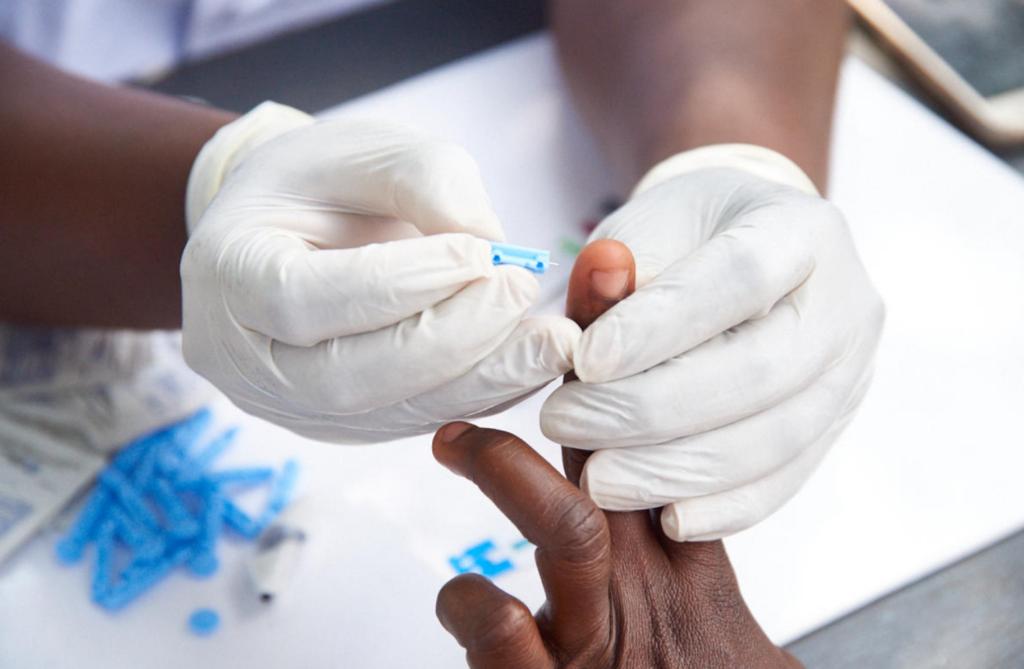
Expanding Healthcare Services for People Who Use Drugs
In Côte d’Ivoire, people who use drugs live in extreme precarious conditions and are particularly exposed to pandemics, including tuberculosis. With the support of L’Initiative, Médecins du Monde implemented a project between 2021 and 2023 to consolidate and expand healthcare services dedicated to these vulnerable populations. This support continues with the Ya-Fohi project, which strengthens harm reduction services, advocates for the application of existing legal frameworks, and promotes the integration of this healthcare model within the national health system.
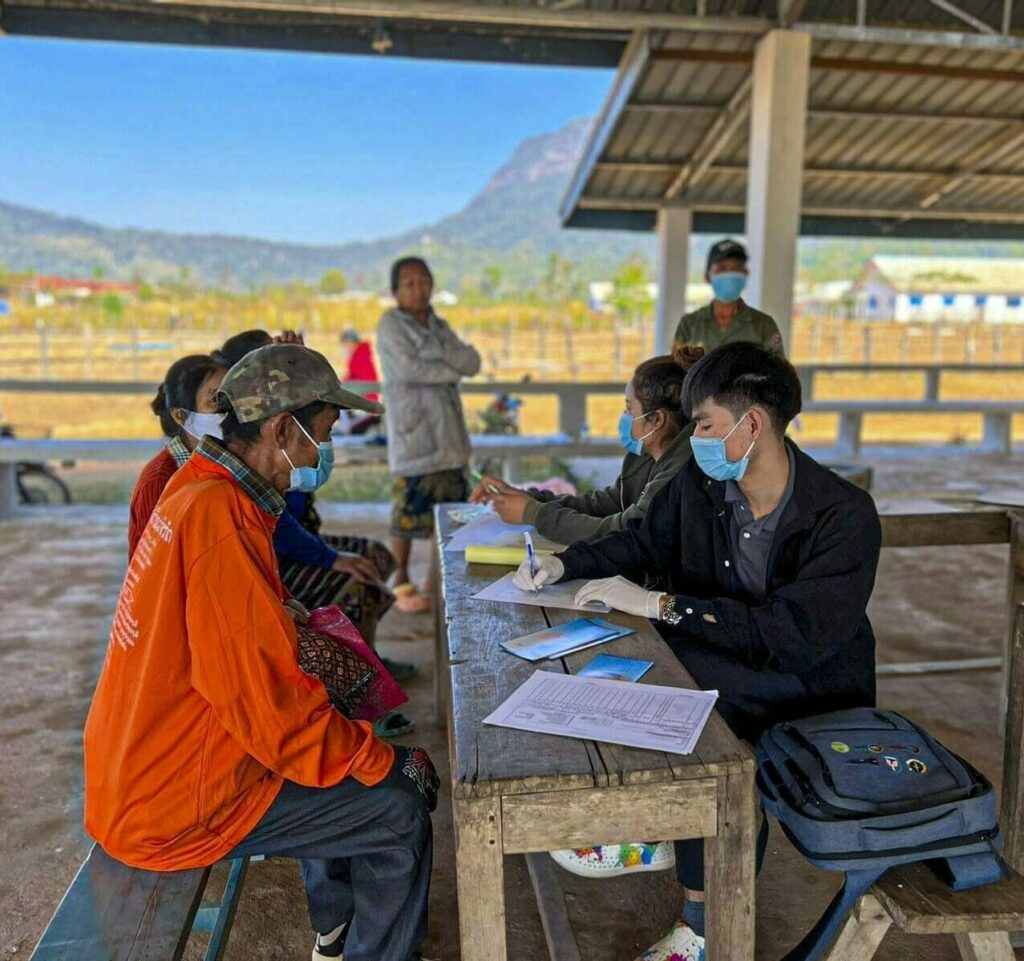
Supporting Community-Based Tuberculosis Efforts in Laos
In Laos, stigma, rural poverty, and lack of awareness make it difficult to identify suspected tuberculosis cases. A project, implemented by the Community Health and Inclusion Association (CHIAs) and funded by L’Initiative, aims to increase tuberculosis case detection and improve treatment success rates through enhanced community-based interventions. This initiative mobilizes community health workers in two Lao provinces to raise awareness, screen, and treat tuberculosis.
Supporting Innovative Approaches to Fight Tuberculosis
L’Initiative supports innovative approaches aimed at developing effective tools and strategies to tackle the challenges of tuberculosis. It partners with research-driven organizations to improve screening and treatment for the disease.
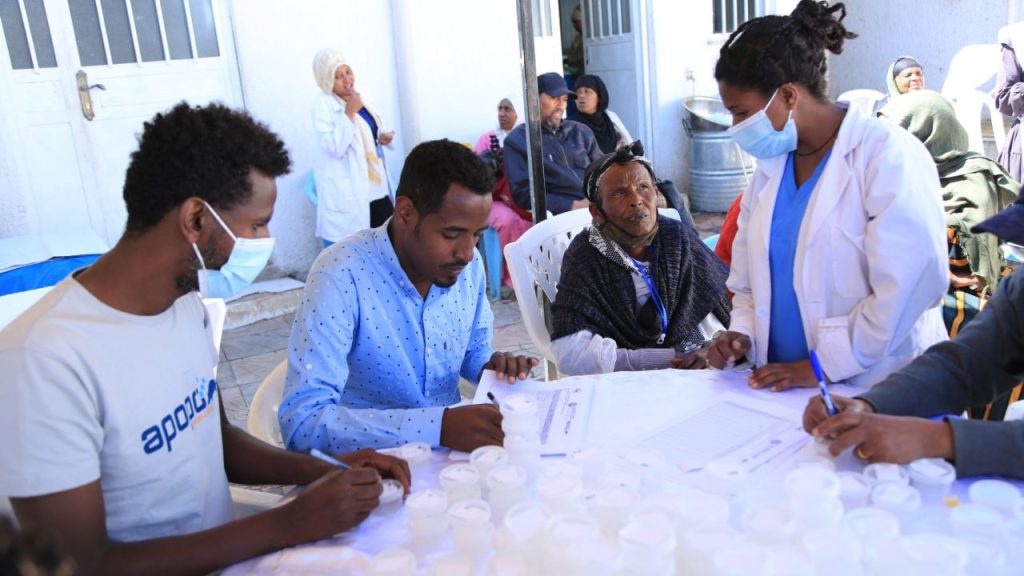
AHRI-APOPO: Targeting, Screening, and Treating Tuberculosis Among Disadvantaged Populations in Addis Ababa
Ethiopia is among the 30 countries most affected by tuberculosis and HIV/TB co-infection. According to WHO, 188,000 people are infected in the country. The disadvantaged populations of Addis Ababa are among the most affected. Negussie Beyene and Aline Serin discuss the AHRI-APOPO project and its innovative screening and awareness initiatives.
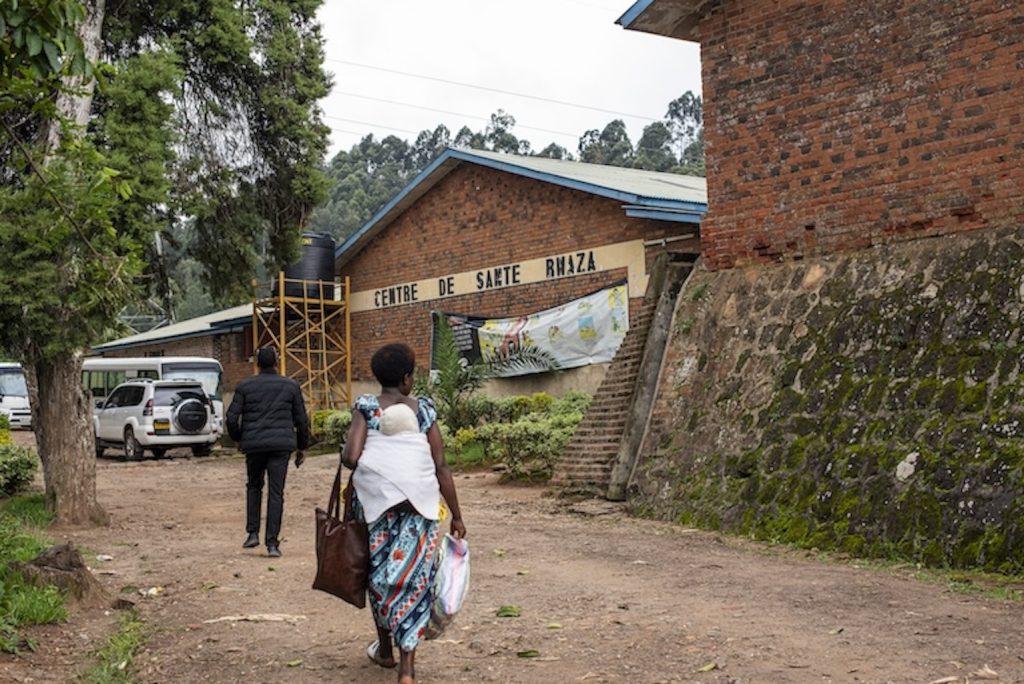
Tuberculosis in Rwanda: A Geospatial Analysis to Identify High-Risk Populations
While Rwanda successfully treats 89% of tuberculosis patients according to WHO, some populations remain undetected. With technical assistance from L’Initiative, the National Tuberculosis Control Program has developed a method to identify these high-risk groups. The project relies on geospatial analysis to define, locate, and estimate populations at risk who may have been overlooked by the healthcare system. Patrick Migambi and Ente Rood, both epidemiologists, discuss this innovation.
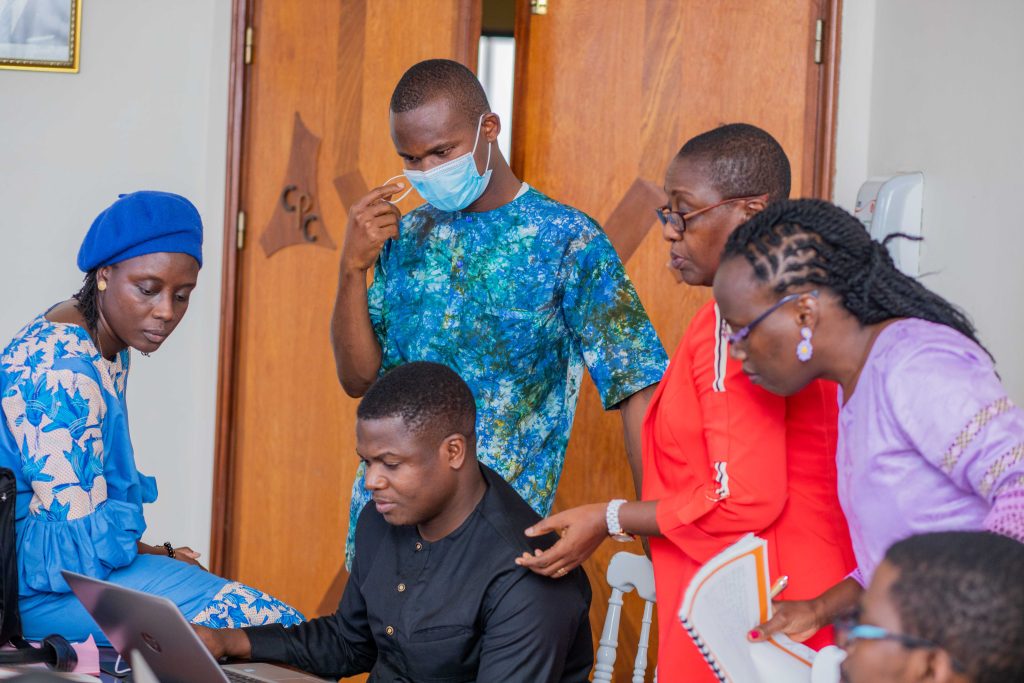
Supporting Six Operational Research Projects Following the Tuberculosis Masterclass
After a Masterclass organized by L’Initiative in late 2023, six operational research projects were selected to support national tuberculosis control programs in Francophone Africa. One project focuses on adherence to preventive tuberculosis treatment in children under five, while another examines the role of livestock and wild animals in the transmission of the disease.
Researchers Speak Out
At the core of the fight against tuberculosis are researchers. In the podcast “Tuberculosis: Voices of Research,” L’Initiative gives them a platform across seven episodes, blending social sciences and medicine to explore the dynamics of the epidemic.


